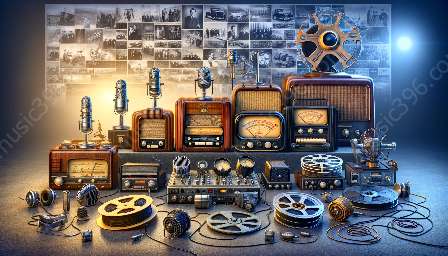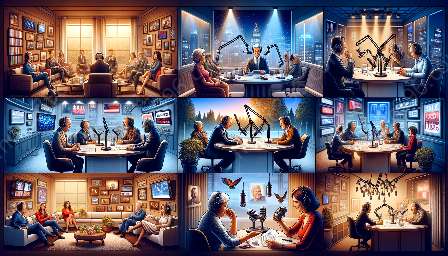Radio has played a significant role in shaping public opinion throughout history, influencing societal perspectives and public discourse. By exploring the historical significance of radio, its role in public opinion formation, and its impact on public perception, we gain insight into the power of this medium in shaping the narrative of our collective consciousness.
The Role of Radio in Public Opinion Formation
Radio has been a crucial force in shaping public opinion, acting as a powerful tool for disseminating information and influencing public discourse. The development of radio broadcasting allowed for the widespread transmission of news, entertainment, and cultural programming, reaching audiences far and wide. In the early 20th century, radio became a primary source of information and entertainment for the public, shaping their perceptions and attitudes towards various topics.
One notable example of radio's role in public opinion formation is its influence during times of conflict and war. Radio broadcasts during major conflicts, such as World War II, served as a critical means of communication and propaganda, shaping public opinion on national and international matters. The compelling nature of radio storytelling and news reporting had a profound impact on public sentiment and perception of world events, making radio a formidable force in shaping public opinion.
Historical Significance of Radio in Shaping Public Opinion
The historical significance of radio in shaping public opinion cannot be understated. During the rise of radio in the early 20th century, it became a primary source of information and entertainment, influencing public sentiment and societal perspectives. Radio broadcasting allowed for the dissemination of news, political commentary, and cultural content, shaping public discourse and opinion on a wide range of issues.
Radio's historical significance is evident in its ability to mobilize and unify public opinion. From presidential addresses to grassroots movements, radio has served as a catalyst for social and political change by shaping public opinion and galvanizing collective action. The iconic broadcasts of figures such as Franklin D. Roosevelt and Martin Luther King Jr. exemplify the historical significance of radio in shaping public opinion and inspiring societal change.
Impact of Radio on Society and Public Perception
The impact of radio on society and public perception has been profound, with radio shaping the narrative of cultural, political, and social issues. Radio programming has been influential in shaping public attitudes towards topics such as civil rights, political ideologies, and international affairs. Through captivating storytelling, influential speeches, and persuasive messaging, radio has shaped public opinion on a multitude of issues, leaving an indelible mark on societal perspectives.
Furthermore, the democratization of radio as a medium has empowered diverse voices and perspectives to reach the public, playing a pivotal role in challenging mainstream narratives and shaping alternative viewpoints. This democratization has led to the diversification of public opinion, as radio has provided a platform for marginalized voices and underrepresented communities to influence public sentiment and societal attitudes.
In conclusion, the historical significance of radio in shaping public opinion is multifaceted, with radio serving as a powerful force in public opinion formation and societal discourse. Through its role in shaping public opinion, the historical impact of radio has reverberated through history, influencing the collective consciousness and shaping societal perspectives.









































